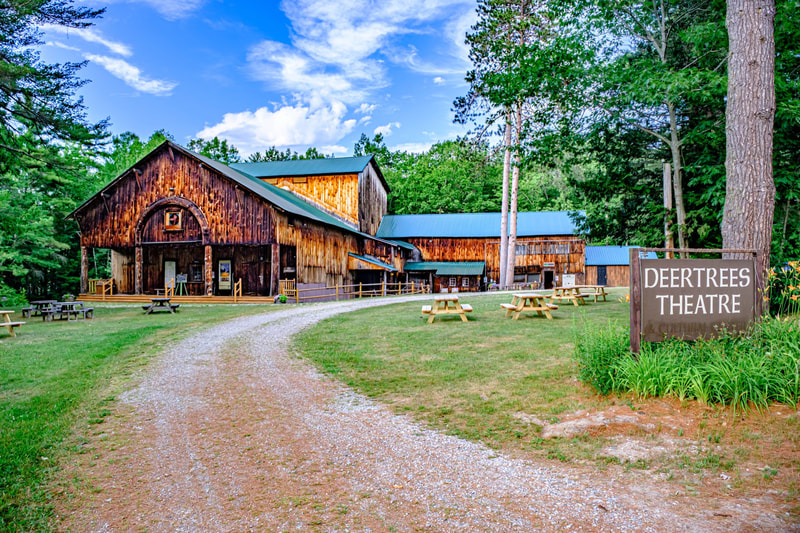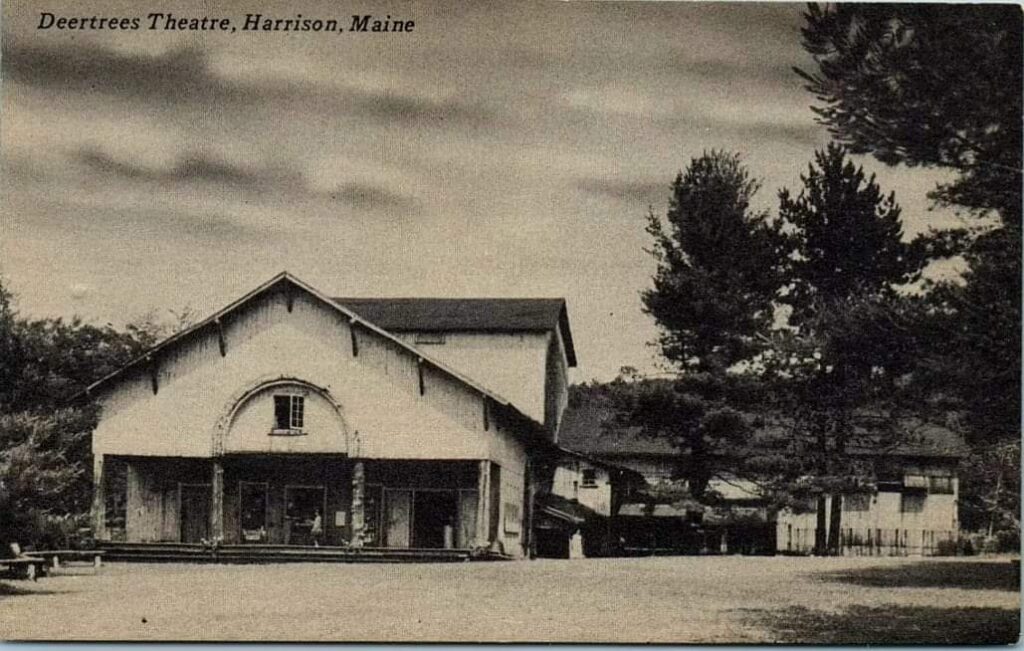
Since 1936 the famous and the unknowns, Broadway stars and local would-be actors, world-acclaimed musicians and aspiring students have graced the Deertrees stage.
Nestled in the beautiful foothills of Southern Maine’s Lake Region, the town of Harrison has historically served as a secluded retreat for many artists. In the 1930’s one of the town’s prominent summer residents was the opera director and singer, Enrica Clay Dillon. Inspired by the tranquility of the area, Ms. Dillon dreamed of building an opera house that would provide an ideal environment for artistic development. In 1933 she set to work to make her dream come true on the site of an old deer run just outside of the town.
Ms. Dillon enlisted the help of New York designer Harrison Wiseman and three years later her “dream child”, an acoustically perfect theater in one of the nation’s most idyllic locations, was born. The 350-seat theater was built of rose hemlock harvested from the property and featured hand-carved beams, doors, trim and light fixtures. Inside the theater was a lighting system surpassed only by theaters in New York City and a stage area comparable to that of the Metropolitan Opera House. The construction cost was over $60,000, a phenomenal sum in those days.
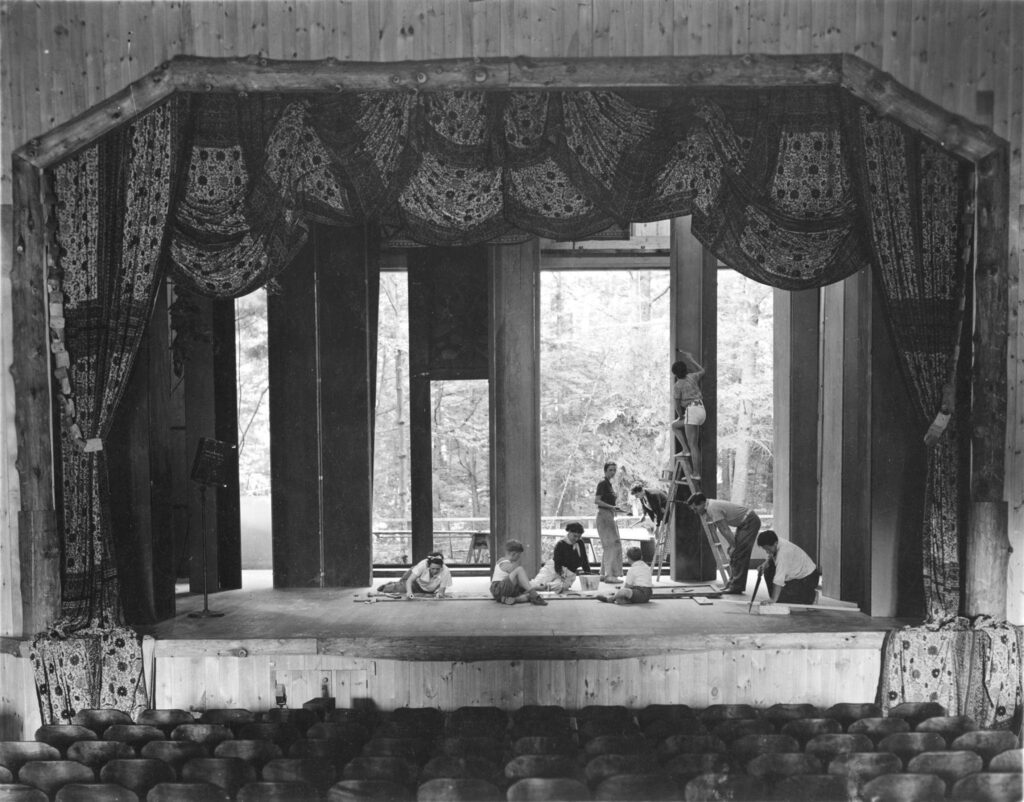
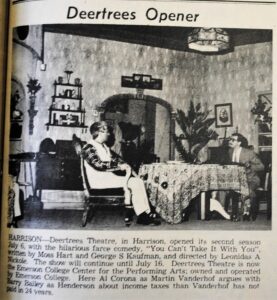
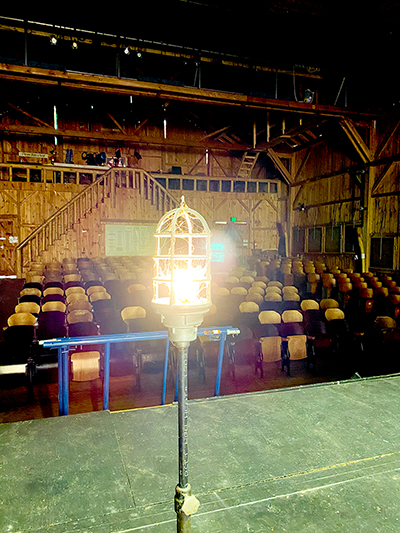
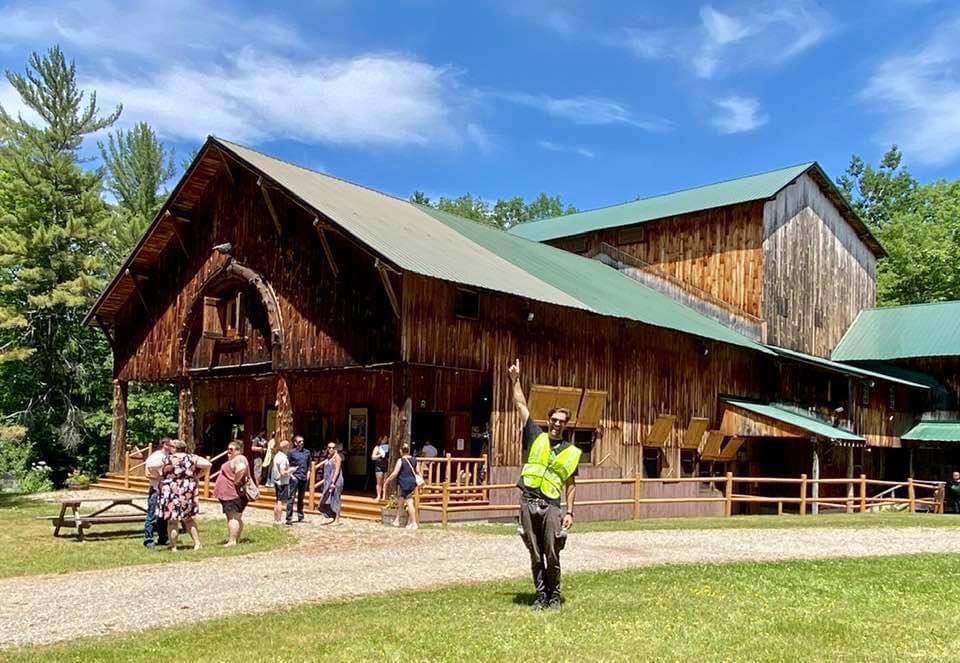
World War II kept Deertrees closed until 1946 when Ms. Dillon ran her last year of opera. She died in October of that year. The late ’40’s found New York attorney, A.L. Sainer, as producer, with his son-in-law Robert Harris as director. Together they hosted a resident summer stock company, staging such shows as “Jenny Kissed Me”, “Arsenic and Old Lace” and “Yes, My Darling Daughter”. In 1954 Deertrees was purchased by Sherwood Keith, founder of the Boothbay Playhouse, who, for two summers, presented a weekly offering of shows performed by outstanding community theater groups from all over New England.
Mrs. Aya Sholley acquired Deertrees in 1956 and leased the facility to various production companies and concert organizations until 1965. Edward Dangle and Samuel Lebovitz produced one of the most noteworthy seasons in 1962. That summer once again featured America’s favorite stars of television, screen and recording fame. Among the headliners were Ann (Schultzy) Davis, Shirley Knight, Allen Case and teen-idol Fabian. In 1965 Mrs. Sholley presented the deed to Deertrees to her alma mater, Emerson College, for use as a summer training center for students.
Directed by Michael Rutenburg, the Emerson College company performed a variety of productions ranging from serious drama to musical comedy. The facility, with a full staff of college instructors, offered college credits to students who lived on the recently expanded grounds in 20 waterfront cabins.
See the doors onstage in the classic 1954 film White Christmas? These are the same back doors at Deertrees Theatre! Come down to take a look.
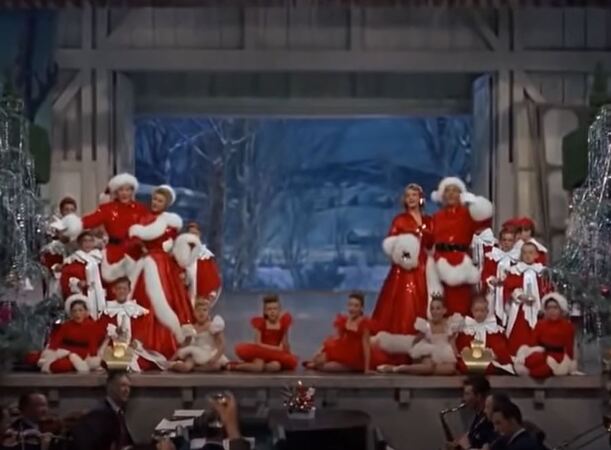
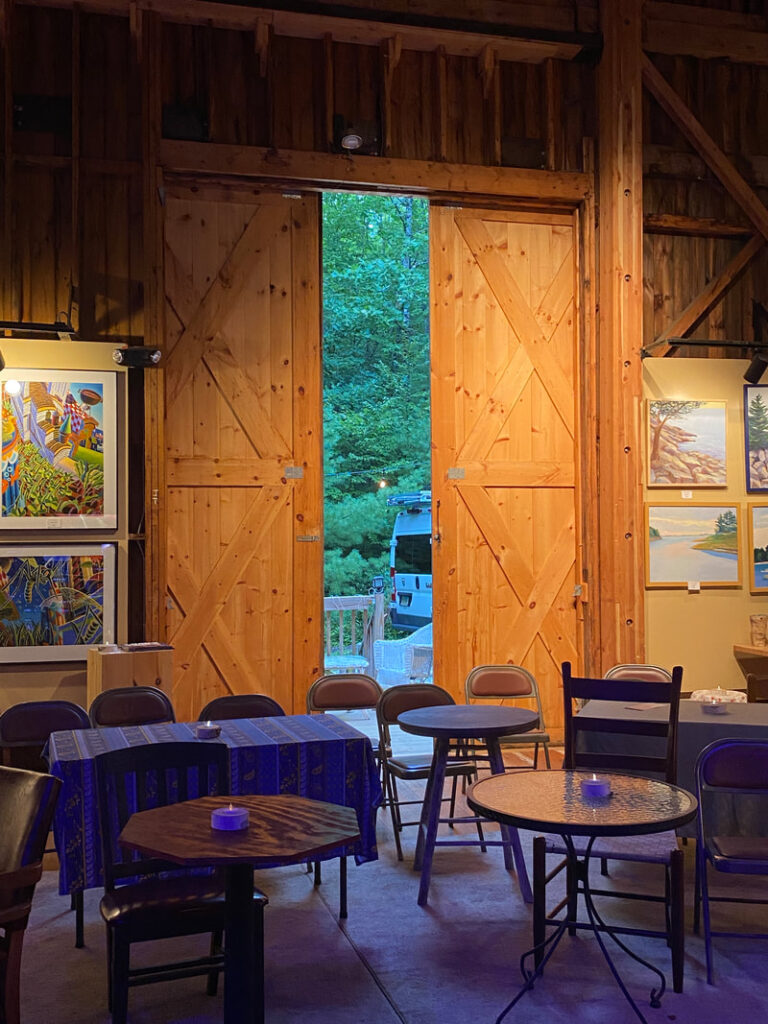
In July or August other strangers have been in the habit of arriving at the Elms Inn. For a quiet week or two they swim and fish and rock on the porches and then leave with contentment, the memory of which draws them back year after year. The townspeople nod to some of them because they’ve seen them about their streets in summer time for so long, but most of them are still strangers for the reason that people of that stern countryside are not given to either quick friendships or quick dislikes. The summer people, as they’re called, come and go, leaving no more lasting impression than they’d done if they’d once gone through Harrison in a car and stopped at Ivory Purington’s garage for gasoline. Summer before last Harrison got a shock. A man from New York was going to come up and put on plays out at Deertrees, three quarters of a mile from town. Harrison didn’t take very kindly to the idea. Talk in the drugstore and the barbershop and the post office and the one restaurant, while not unfriendly, certainly didn’t promise a very warm welcome. The feeling was that if this man from Broadway was successful and brought some trade to town that would be fine. But nobody was going to have much truck with this Bela Blau or the people who came up with him. Well, that isn’t what happened, as anyone who knew Bela Blau would guess.
Bela started his season and the people from the summer resorts and the children from the camps came to see the plays. Occasionally some stopped at the drugstore for ice cream cones or sunburn lotion or dropped in at the restaurant for a sandwich. But there wasn’t much change in the town itself. The summer people simply passed through on their way to Deertrees, three quarters of a mile away. That three quarters of a mile was pretty bad going, for it was an old narrow road that hadn’t been much to begin with and had fallen off considerably in its usefulness. Anyway, the summer people came and went – strangers. But Bela they saw every day. He came to town and went to the post office, bought supplies at the general store now and then and asked advice of this townsman and that. They found him as interested in hearing what they had to say about life in general as in the answers to his questions. Then they got in the habit of talking all sorts of things over with him. And by the time the summer was over they’d got out of the habit of looking on him as a stranger. They’d learned he was a very likeable man and went out of his way to show that he liked both Harrison and the people who lived in and near it.
Well, the summer ended and the theatre completed its season and Bela got ready to go back to New York. As he was about to leave he got one of the pleasantest surprises of his life. Representatives of the Board of Selectmen came to him and said in substance; “Mr. Blau, we like you. We like what you’ve done for the town. To show our appreciation and to help Harrison at the same time, we’re going to see that you have a good road to the theatre when you come back to Deertrees next year. Just about everyone hereabouts has signed a paper promising to help.” Sure enough, this spring they made good their promises. Lou Galluba, the local druggist, Harley Pitts, the postmaster, Ivory Purington, who runs the garage, C.C. Robbins, the insurance agent, Ray Lamb, Kenneth Sampson, Sam Pitts, Cliff and Robert Denison, Fred Greene, owner of the general store and I don’t know how many others all donated their time and labor and tractors and rollers and other necessary equipment for a full day. And the road to the theatre was built.”


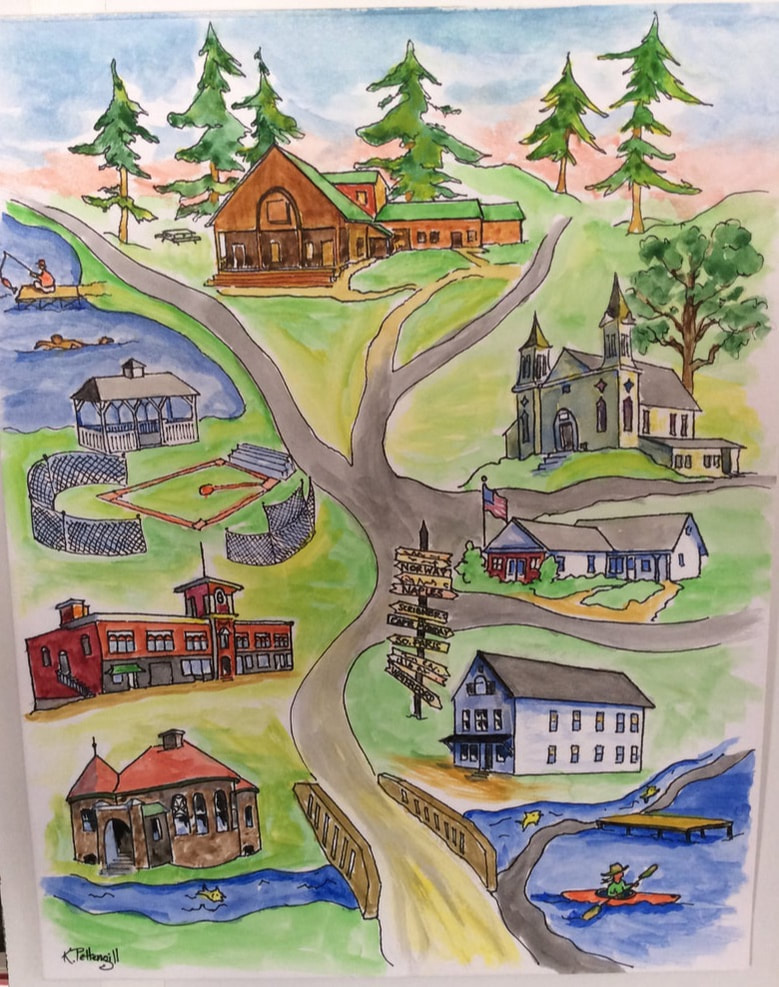
Kelly Dawn Purington was born in Harrison Maine, and she sent us this article about her Grandfather building the Road to Deertrees Theatre ~ circa 1939
“Up in the state of Maine is a little town called Harrison. The flavour of the town’s personality can be found in the work of Grant Wood and Thomas Benton. Its population is less than three hundred. Everyone knows everyone else. Its daily life consists mostly of serving the needs of the people on the nearby farms. They don’t need much, they don’t ask much. Life is simple and self-sufficient. There isn’t a bank in the town and they don’t need one. In the winter there’s some excitement and activity when skiing parties appear for a moment on their way to North Conway. In the summer traffic on the main street consists mostly of strangers on their way to the resorts in the nearby lakes and mountains.
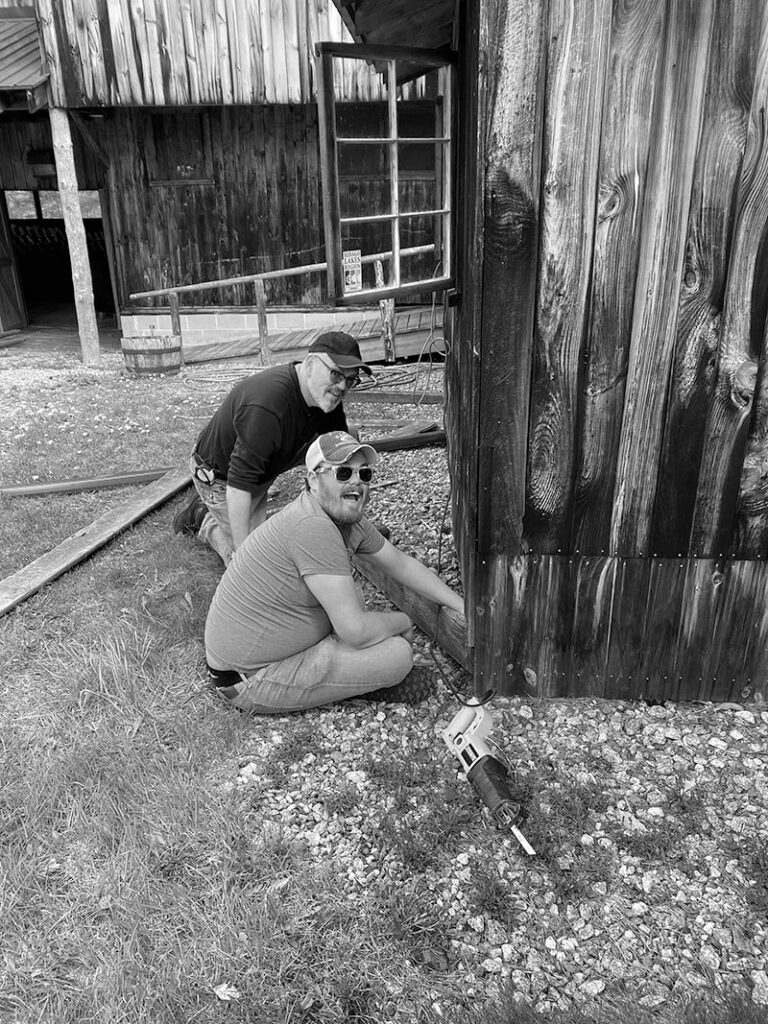
In 1969, former Emerson student, David Maturi, bought Deertrees from the college for $9,000 and with Alfred Corono founded the Coventry Center for the Performing Arts. The company presented exciting seasons of light comedy and musical shows, featuring dinner and theater special with local restaurants; however, rapidly rising costs caused the company to close after 1970. Maturi sold the property to Mr. and Mrs. Donald Ritter in November 1974. The Ritters maintained two resident companies, one for the production of opera, and the second concentrating on experimental theater. Deertrees also housed a variety of concerts and a children’s theater. But after 1979 the theater again went dark, a victim of the ’70’s gas crisis and weak cash flow.
By the 1980’s the building had fallen into serious disrepair and porcupines were the only visitors. The town of Harrison had gained title to the property in lieu of taxes and, under the leadership of Dr. Allan Mills, a group of concerned citizens applied to create a non-profit foundation to save the theater and recreate the climate in which Deertrees originally thrived. At first, performances were staged on the theater’s front porch as the building was considered unsafe for occupancy but by the early 1990’s restoration allowed the original stage to be used again.
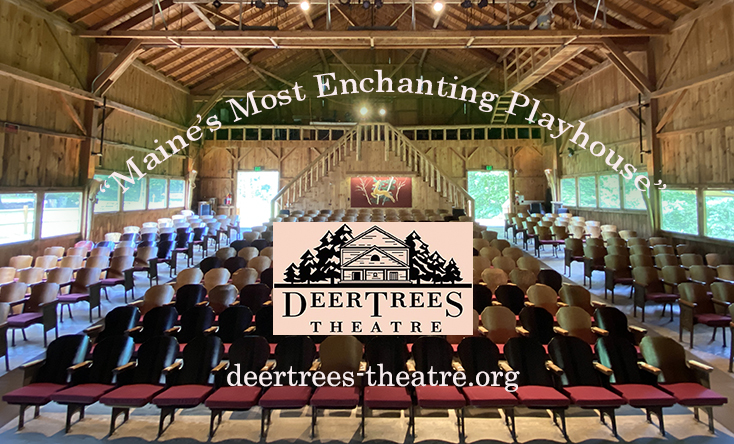
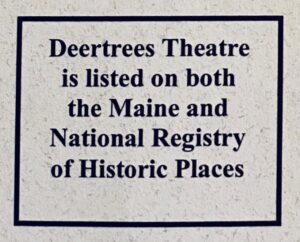
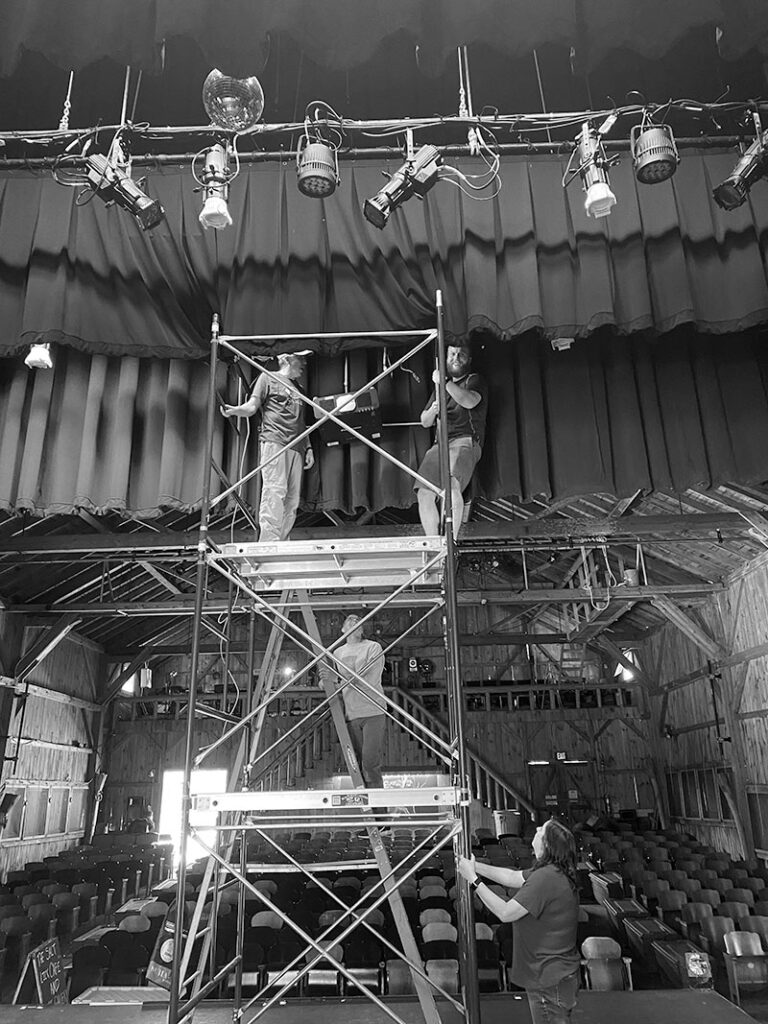
Now listed on Maine’s State Register of Historic Landmarks and on the National Registry of Historic Places and self-funded by box office receipts, grants, and an annual capital campaign, the restoration of the theater continues. In 1999 the Town of Harrison deeded the theater to the Deertrees Foundation and today the theater is being run as non-profit theater presenting around forty productions during a season that runs from late June to September. As home to the Sebago Long Lake Music Festival (SLLMF), the Backstage Gallery and Salt Lick Cafe, the magic of Deertrees continues to enchant all.
